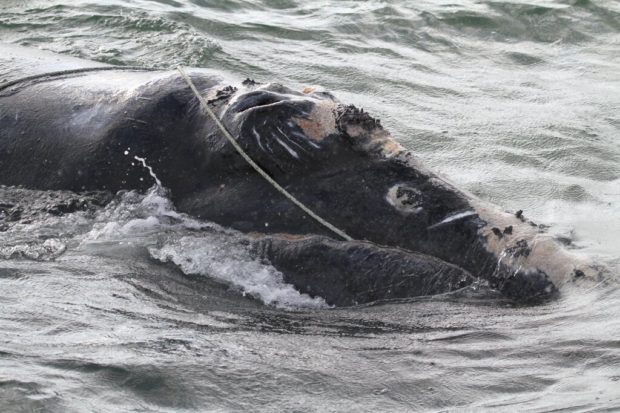
The scientists single out the plight of the North Atlantic right whale, who lives along the U.S. and Canadian coast. Today, only a few hundred of these individuals are alive, and their numbers continue to drop at an alarming rate, with more deaths than births. Photo by NOAA News Archive 123110
Whales, dolphins and porpoises, known collectively as cetaceans, face momentous challenges to their survival today. Many of these animals are disappearing right before our eyes, like the Chinese river dolphin, declared possibly extinct in 2017, and the Mexican vaquita, a species of porpoise that is all but extinct with only 10 individuals likely remaining in the Gulf of California.
This week, more than 250 cetacean experts from over 40 countries took the unprecedented step of sending global leaders an open statement urging swift action to save cetaceans before it’s too late.
The scientists estimate that of the 90 cetacean species now around, more than half have a “concerning conservation status” and might be swimming toward extinction. Thirteen species have already been listed as “critically endangered” or “endangered.” Many discrete populations are also in trouble and could become locally or regionally extinct.
A great deal of this decline is being driven by human activities, including pollution, habitat and prey loss, climate change and collisions with ships. Foremost among the threats is fishing bycatch—marine animals incidentally caught and killed in fishing operations.
This is a serious crisis, not only for these charismatic animals, but also for the health of our oceans, where cetaceans play an irreplaceable role as apex predators. But action to address the problems has been inadequate, the scientists say, adding that the lack of concrete action “means that many [cetacean populations], one after another, will likely be declared extinct within our lifetimes.”
The scientists single out the plight of the North Atlantic right whale, a mammal who lives along the U.S. and Canadian coast. Today, only a few hundred of these individuals remain alive, and their numbers continue to drop at an alarming rate, with more deaths than births. The scientists chastise the right whale’s “relatively wealthy range countries” for failing to address the decline, despite the fact that factors driving the decline are well known and could be addressed.
Humane Society International’s senior marine scientist, Mark Simmonds helped to coordinate this letter because the plight of cetaceans is an issue of deep concern for us. The Humane Society family of organizations has been among the loudest voices speaking out in favor of expanding conservation work for cetaceans at global forums, including the International Whaling Commission, where we have been very pleased to see progress on some of the major threats facing these animals . At the end of this month the IWC’s Conservation Committee will meet virtually and we hope this message from the scientists will be on the agenda for consideration.
Cetaceans are beloved inhabitants of our oceans and rivers, inspiring awe and wonder among those lucky enough to see them. They are a major tourist draw, providing a great economic benefit to the nations along whose coasts they live. They not only help keep marine ecosystems in balance, they also provide important nutrients that keep the waters, and their other inhabitants, healthy.
We thank the scientists who signed on to this statement for drawing attention to this critical issue and we now urge all nations whose waters are home to these animals to come together and swiftly implement policies that will reverse the tide for cetaceans before it’s too late.
The post Whales, dolphins and porpoises are disappearing at an alarming rate; Scientists issue urgent call to reverse the tide appeared first on A Humane World.
Enviroshop is maintained by dedicated NetSys Interactive Inc. owners & employees who generously contribute their time to maintenance & editing, web design, custom programming, & website hosting for Enviroshop.
